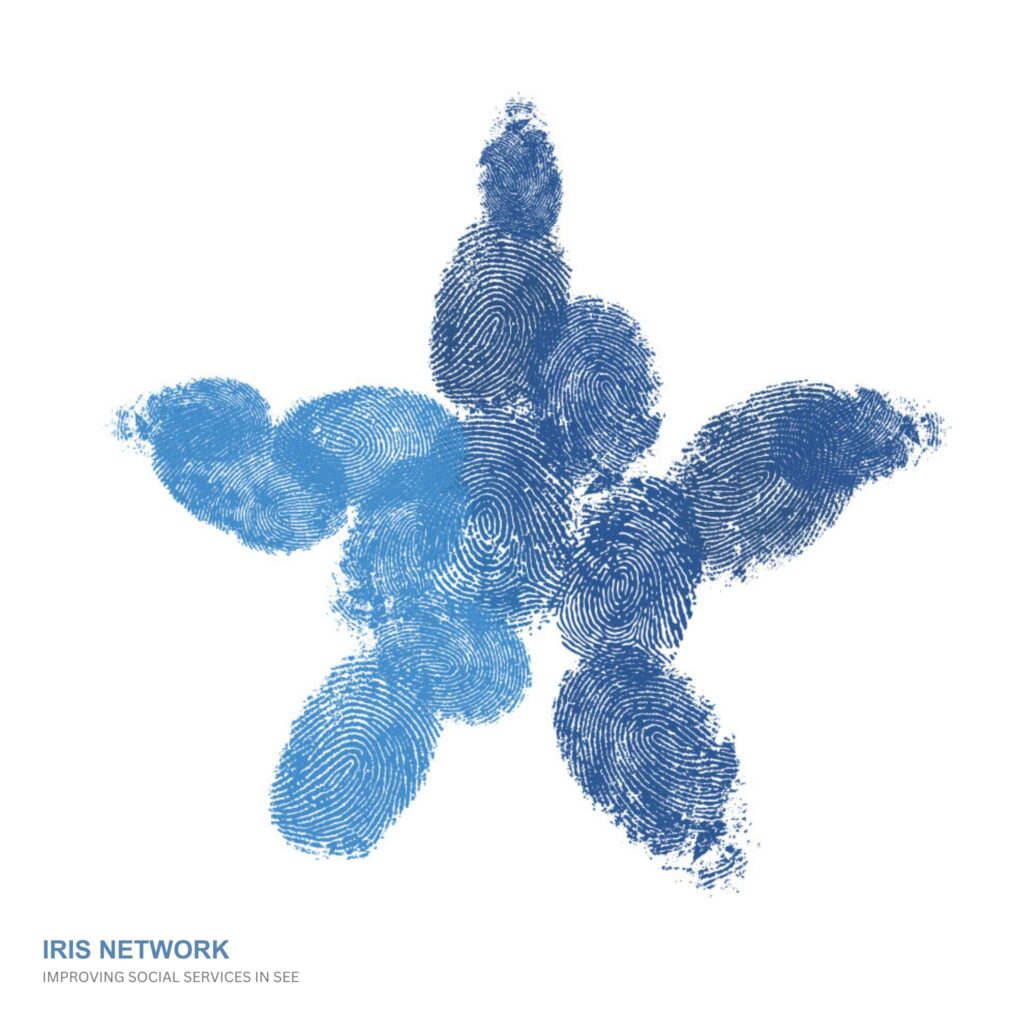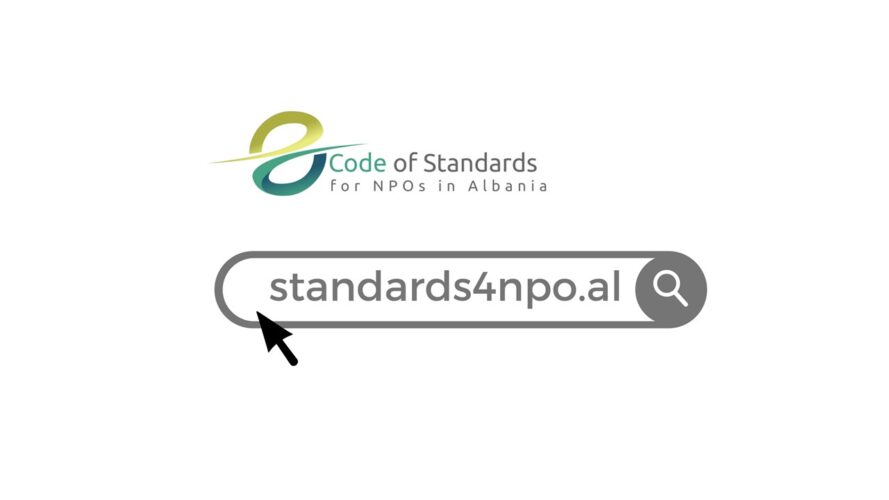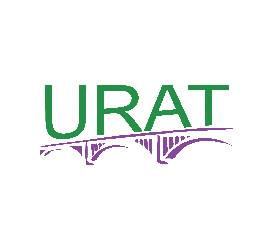Dynamo International coordinates the International network of social street workers who approach various populations in their environment (children, youth people and adults). 50 national platforms of street workers are members of the network, coming from southern and northern countries, in which is involved Nisma with 5 social workers.

E.p.a. is a recognized INGYO (International Non-Governmental Youth Organization) with a network of partner organizations in more than 40 countries currently in Europe, South America, the Caribbean, in Africa and around the Mediterranean. e.p.a. works with children, young people and women’s groups from communities in areas of poverty and social exclusion.

IRIS network is the only regional network that brings together CSOs social service providers in South East Europe. IRIS connects currently 140 member organizations that provide different types of social services to different vulnerable groups: people with disability, children and youth at risk, women victims of family violence, refugees, asylum seekers etc.
IRIS aims to strengthen the role of not-for-profit social service providers throughout SEE and to ensure that these organizations are recognized as equal partners by the public sector. IRIS was founded in 2012 and from the mere beginning we had a huge support from our partners in the European Union and in the CSF program.

PICUM, the Platform for International Cooperation on Undocumented Migrants, is a network of organizations working to ensure social justice and human rights for undocumented migrants. Bringing together a broad range of experience and expertise, PICUM generates and coordinates a humane and informed response to undocumented migrants’ realities and provides a platform to engage policy makers and the general public in the full realization of their rights.

The Code of Standards introduces a self-regulatory mechanism for the sector, aiming to improve the work effectiveness of non-profit organizations, good governance, transparency, and accountability. It is a set of principles and commitments on how organizations operate, how they are governed, how they manage resources, how they are transparent and accountable to all stakeholders, how they build relationships with supporters and donors, how they manage conflicts of interest, etc. As a self-regulatory mechanism undertaken by the free will of NPOs, the Code of Standards is a tool that promotes learning and change, strengthens relationships with partners and stakeholders, and increases the legitimacy and credibility of CSOs. Nisma për Ndryshim Shoqëror, ARSIS is one of the first members of the Code of Standards.

Global Modern Slavery Directory (GMSD) is an interactive, searchable map and database of organizations and agencies across the globe that address the issue of modern slavery and human trafficking. The GMSD includes organizations that address all types of human trafficking, including sex trafficking, forced labor and debt bondage, forced marriage and child marriage, child trafficking, child pornography, organ trafficking, trafficking within international adoption, and international marriage brokering mechanisms (“bride trafficking”). Nisma per Ndryshim Shoqeror ARSIS is one of the organizations included in the database.

The European Union Agency for Asylum (EUAA) is an agency of the European Union mandated with supporting Member States in applying the package of EU laws that governs asylum, international protection and reception conditions, known as the Common European Asylum System (CEAS).
The EUAA acts as a resource for Member States in the field of international protection, with the ability to provide practical, legal, technical, advisory and operational assistance in many formats. The Agency does not replace the national asylum or reception authorities, which are ultimately entirely responsible for their procedures and systems.
The first At-Risk Youth (ARYSE Network) in the Western Balkans was founded in 2016, supported by the EU regional project, by six civil society organizations and partners from Albania (Nisma ARSIS), Bosnia and Herzegovina (Margina), North Macedonia (HOPS), Kosovo (Labyrinth), Serbia (Prevent) SHL Foundation from Germany, coordinated by CSO Juventas from Montenegro.
ARYSE Network was founded with the aim to contribute to the regional achievement of social inclusion of most at-risk Youth, by strengthening CSOs capacities, regional/national cooperation, and advocacy actions, and specifically to support equal access to education, employment, justice, and other related fields to most at-risk young people in WB countries, by fostering the level of active participation and inclusion of CSOs representing young people in decision making and reform processes. Since then, the Network has implemented several joint projects and managed to expand its national and regional influence and involve many other CSOs in its work, thus strengthening their capacities and thereby providing social services to at-risk youth from different vulnerable groups.

URAT (United Response Against Trafficking) works to coordinate anit-trafficking efforts between NGOs and Religious Congregations based in Albania. URAT strives to promote human dignity and create a strong network of resources for those involved in anti-trafficking efforts and the victims of trafficking.

Religious in Europe Networking Against Trafficking and Exploitation: “Working tirelessly to rehabilitate victims, free the world of sexual and labor exploitation, slavery and forced organ harvesting.” It was established by a group of religious representing several different congregations working against human trafficking in Europe.
Renate network with Talitha Kum, which is the International network of sisters working against trafficking in persons. Renate also collaborates with many other networks within and outside Europe. Networking is the strength of RENATE.

WeProtect Global Alliance (‘the Alliance’) brings together over 280 members from governments, the private sector, civil society and intergovernmental organisations to develop policies and solutions to protect children from sexual exploitation and abuse online. Nisma ARSIS joined the Alliance on February 2024.
The alliance provides greatest support for its members by acting as a force multiplier and catalyst for a more effective and inclusive global response. It provides support to members to achieve more together than they could alone, through pooling and sharing knowledge and data, solving problems and making a powerful case for change.

Nisma për Ndryshim Shoqëror ARSIS is a member of the Code of Standards for Civil Society Organizations.
Administrative Office of Nisma ARSIS
Rr. Sali Butka, Pallati T.B.M, Ap 1, Njësia Administrative nr.7, PC 1023, Tirana Albania
Multifunctional Center “House of Colors”
Rr. Sali Butka, Ish-Nshrak, Administrative Unit no.7, PC 1023, Tirana Albania
Early Childhood and Family Supporting Center
Rr. Isuf Elezi, Blloku i Vilave Selite, Administrative Unit no.5, Tirana Albania
Mental Health and Psychosocial Services for Afghan Nationals in Albania
Resort Rafaelo Shengjin, Lezhe
Community Multifunctional Center Xhafzotaj – Rrashbull
St. Zoteknik Xhafzotaj, Njesia Administrative Rrashbull, Durres, Albania
Emergency Support Services
Monday to Sunday – 24/7h
Integrated Social Care Services
Monday to Friday – 08:00 – 16:30
Social Services near Comunity Centers: 08:00 – 16:30
Emergency Services: Open 24/7
COPYRIGHT © 2022 NISMA ARSIS. ALL RIGHTS RESERVED

If you note any form of abuse to children during an activity or work supported by Nisma për Ndryshim Shoqëror ARSIS, please report immediately at: initiative.arsis@gmail.com